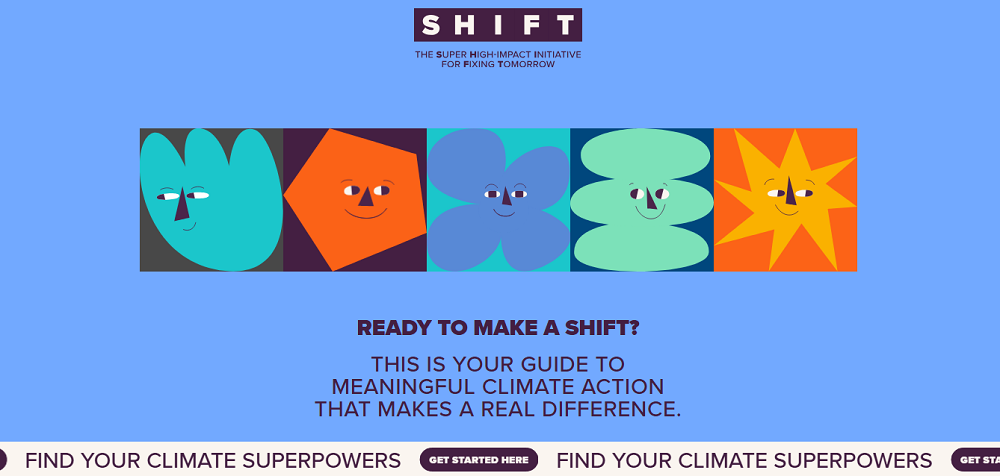There are lots of things happening locally on climate action and climate awareness across the globe is growing.
But we’d still like to know what we can actually do to address climate change.
This blog has put together a piece on practical tips to help households reduce emissions, conserve resources, and embrace nature without sacrificing comfort or style.
And the Climate Awareness Project Sidmouth has got several projects going, including thermal imaging surveys (you can borrow a camera to see where your home is ‘leaking energy’), Carbon Footprinting (you can measure how exactly how much carbon you’re producing) and the Eco Hub Sidmouth (you can get loads of info and engage with others on the issues).
There’s now something very specific and very helpful – called SHIFT:

The BBC’s Earth blog has just created a very useful introduction and way into this new initiative: Care about climate change? The evidence shows these are the most impactful actions you can take.
Here’s the opening of their piece:
While there has long been a focus on how to reduce the carbon footprint of what we buy, do and eat, it’s harder to pin down the impact of many other measures people take, from community engagement and how we choose to vote, to where we save our money and the impact we can have in our workplaces.
But a growing body of research is revealing just how effective such other actions can be. In short, it seems, they can change a lot more than we might think.
Now a project named Shift (Super High-Impact Initiative for Fixing Tomorrow) has created a questionnaire to help guide people towards their most impactful climate actions, tailored to each person’s individual circumstances and based on scientific research.
Kimberly Nicholas, professor at Lund University Centre for Sustainability Studies in Sweden, launched the guide alongside Project Drawdown, a US non-profit which focuses on science-based solutions to climate change. The BBC spoke to Nicholas to find out which personal actions really tend to make the most difference for the climate, according to the evidence.
What is the Shift guide and how did it come about?
For the last 10 years, I’ve been working on identifying and communicating effective climate action. I started thinking a lot about how consumer actions are really important, but they’re not enough, and we need to focus more broadly on a set of “climate superpowers”, as I call them. I and other researchers identified those five roles in a paper published in 2021, and they were also taken up by the IPCC [Intergovernmental Panel on Climate Change], the UN climate panel in its 2022 report.
The consumer is one of them, but it’s also how people engage as citizens, investors, professionals and role models. We wanted to help people recognise the power they already have to make a really big difference for climate and essentially direct people towards what we know works, what we have evidence that moves the needle. I see it as connecting personal and systemic change.
Research by Felix Creutzig and others has shown it’s possible to reduce greenhouse gas emissions 40-80% with changes that involve behaviour change or demand-side change. They’re complimentary to and connected with changes in infrastructure and norms and policies, but they do involve people making changes in their everyday life...
So, why not take the guide and go through the quiz at SHIFT – and then we can realise ‘wait a minute, I have more power than I thought, and there’s more that I can do!’
…